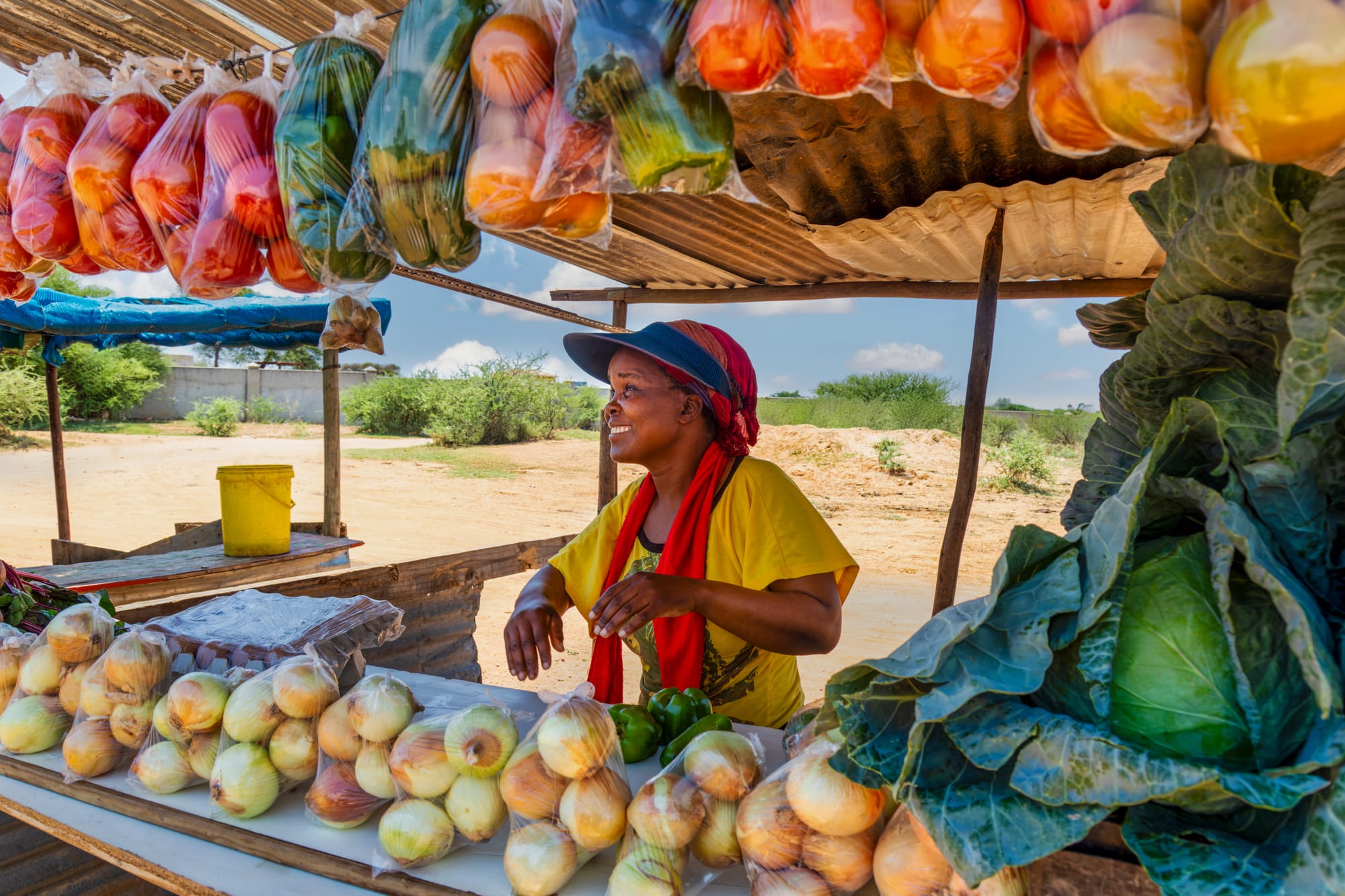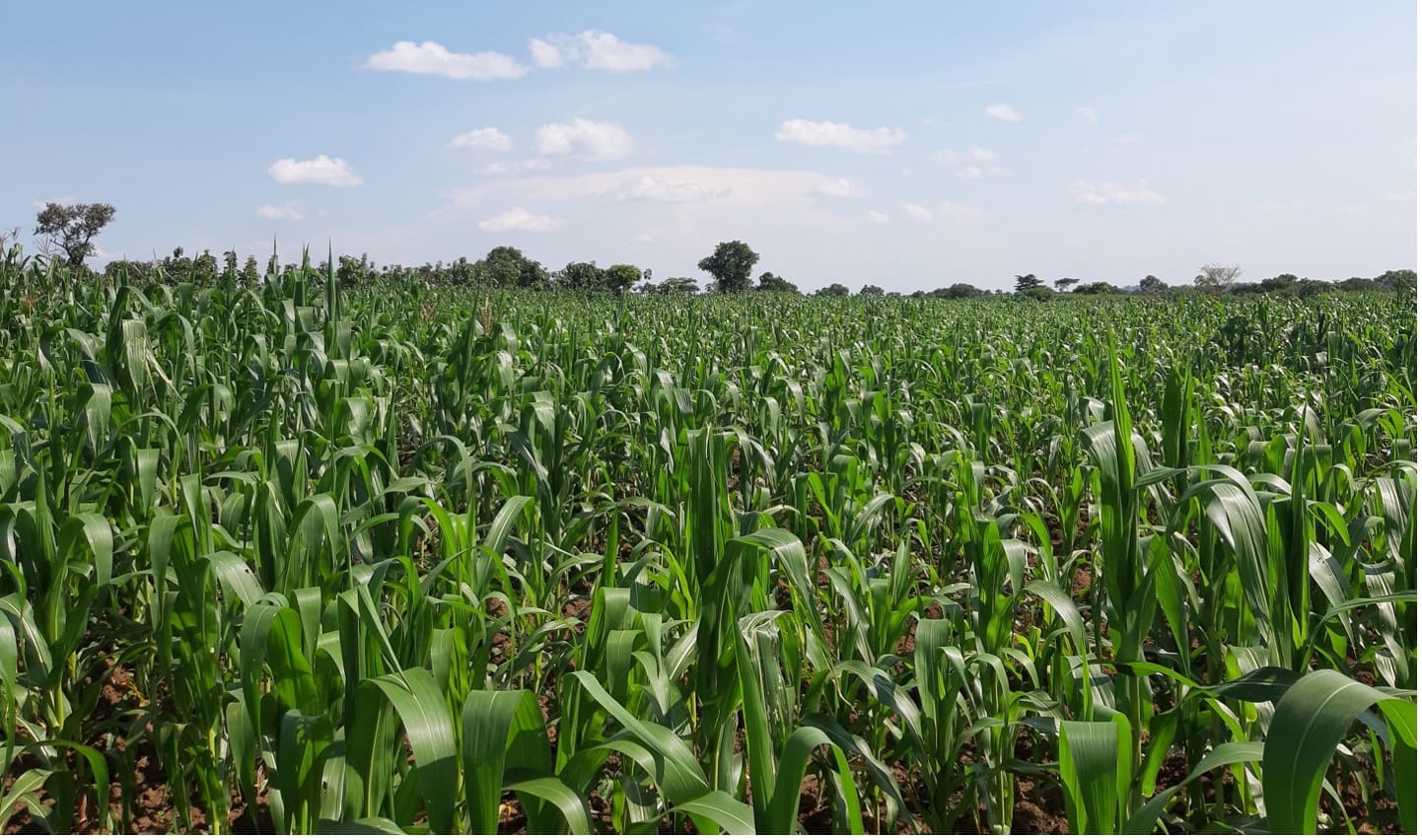Bangladesh’s Southern Delta—home to 30 million people—is afflicted by inefficient farming, persistent poverty, and poor nutrition. But a market systems approach applied by the U.S. Agency for International Development (USAID)’s Agricultural Value Chains Program (AVC), a Feed the Future initiative, is beginning to show great promise for the region.
Implemented by DAI, AVC places less emphasis on grants to small businesses and direct training of farmers, and gives more attention to the rules, relationships, and services affecting agriculture and agribusiness. For example, we are connecting Southern Delta markets to suppliers seeking to grow their customer base, while introducing these markets to the country’s greater agro-industrial complex of producers, processors, and packagers. At the same time, we are catalyzing the support services—such as finance, marketing, and information and communication technology—that underpin the delta’s agribusiness market systems.

Market systems development aims high by striving to help large numbers of poor people achieve sustainable increases in income. Among our results so far, we:
- Forged partnerships with 25 private companies and cooperatives that will sustainably supply farmers with inputs, technology, and management training, as well as market linkages for their crops.
- Introduced a high-yielding and disease-resistant variety of nutritious mung bean, increasing yield by 4 percent per hectare, reducing post-harvest loss by 6 percent, and increasing net income per farmer by $64, or 78 percent, per hectare; we achieved similar success with tomatoes and groundnuts and made progress with other crops.
- Assisted NAAFCO, an agro-input marketing company, to develop orchard services for mango hubs; we then linked safe growers to local supermarkets and e-commerce, availing urban consumers of 500 metric tons of premium-quality mango.
NAAFCO is one of many partnerships AVC developed with medium-to-large agribusinesses. Another is with Ispahani Agro Limited, an integrated pest management (IPM) service that improved its marketing and branding and will ultimately improve food safety by reducing the use of unsafe pesticides. We are building capacity in these established firms to push systemic changes in the Southern Delta.

Large-Scale, Systemic Interventions
A key to market systems development is finding partners able to bring about significant change. Our partnership with the Dhaka Chamber of Commerce and Industries (DCCI) and regional chambers focuses on establishing the chamber as the champion and convener of agricultural market system actors. For example, DCCI will soon host pre-season, crop-specific stakeholder meetings and offer the GLOBALG.A.P. farm certification program. Chamber-led investment forums will uncover and build awareness around business opportunities in the Southern Delta while harnessing knowhow valuable to ramping up inclusive growth. AVC will focus additional assistance around firms that embrace inclusive business practices with farmers and each other—practices that are transparent, clear, fair, and consistent.
AVC is also working to influence how the open or unstructured market functions. Farmers depend on these functions since most crops moving through the Southern Delta flow through these channels. Using accelerators and other means, we are assisting more than 170 entrepreneurs—traders, small and medium-sized enterprises, and spinoffs of nongovernmental organizations—to improve their business management capacity and connect with mentors and investors. Complemented by the support services we are catalyzing, these initiatives will collectively improve performance by the myriad market actors involved in bringing crops to consumers.
Bangladesh AVC forged partnerships with 25 private sector companies and cooperatives that will sustainably supply farmers with inputs, technology transfer, and management training, as well as market linkages for their crops.

Feedback Spurs Innovation
Another key to accelerating market systems development is bridging the gap between research, the private sector, and end users of technology. Bangladesh’s adoption rates for new or improved agricultural technologies—such as seeds, tissue culture, equipment, and IPM—have been too low to drive the country toward middle-income status. AVC found a lack of feedback between the Southern Delta’s farmers and Bangladesh’s greater research and commerce processes. In response, we designed and initiated activities to enhance communication between technology providers and users.
One of our first priorities was to introduce improved marketing practices to agro-machinery and agro-technology firms so they could more effectively reach farmers with information on their products and services. AVC-assisted firms have gained ground in marketing their seeds, equipment, and other technologies, and are now employing researchers in areas such as market information.
By showing market system actors how to market themselves, we have brought other innovations to the fore, including:
- Machines that efficiently mill dal (lentils, peas) and pith coir (coconut hair), which we expect to be broadly available for lease to farmers and processors in the coming year.
- Solar-powered units for mango storage that require less electricity and greatly reduce decomposition; these units will be more widely available.
- Rechargeable drying beads that improve seed storage, particularly for high-value vegetables and tomatoes.
- Eustoma, a high-value cut flower with extended vase life, long flower stalk, and attractive petal color, which was introduced to 40 flower farmers who anticipate buying 200,000 plantlets through 2017.
- Our transportation study that identified shortcomings in this key market support sector and gave rise to a task force committee that is addressing challenges and constraints.
IPM is crucial to Bangladesh’s farmers but remains undeveloped in the Delta. Accordingly, AVC brought five private sector representatives and technical experts to India to study developed, commercially oriented IPM labs and research institutions, and will continue to assist these emerging professionals in their understanding and practice of the bio-pesticide business.

“Crowding In,” Creativity, and Compliance
In the pursuit of good competition, good cooperation, and broadly distributed mutual benefits, market system practitioners need to be nimble enough to “crowd in” the players and their strengths and ideas. AVC designed an adaptive and compliant grants and procurement mechanism—the Blanket Activity Announcement—to manage such market partners. This announcement allows local firms or entrepreneurs to submit innovative ideas and work directly with the AVC technical team to address issues systemic to Southern Delta agriculture. Concept notes selected under the announcement result in Adaptive Market Actor Agreements, which we co-design with our market partners and adapt as needed to foster impact and sustainability. These agreements capture a minimum of one year of collaboration, with grants issued for three- to six-month “modules” of activities that we can shift toward the most successful activity.
This approach stands in contrast to traditional grant announcements, which tend to impose requirements on applicant firms. Here, firms send in concepts related to business goals that align with our market systems objectives. We then create a grant, in-kind grant, or technical assistance contract designed to achieve the firms’ objectives.
AVC engaged 77,000 new farmers this past year, training tens of thousands, formalizing agreements, conducting studies, and tackling urgent issues such as disease in lentils or health scares around mangoes. Within this cauldron, our grants and procurement mechanism helps keep our entire network of staff, partners, and beneficiaries focused on activities that address market systems.

Stage Set for Greater Impact
While the past year entailed full-on development of our market systems approach, AVC managed to generate innovative interventions and substantial results. We increased income and productivity for many of our target beneficiaries, facilitated new private sector investments, and improved relationships throughout the market systems of the Southern Delta. We even supported the Bangladesh Flower Society and local event management firm Windmill in executing the country’s first Flower Fest, which promoted the domestic flower industry and united consumers, producers, and retailers from across the value chain.
But our most important activity was establishing platforms tailored to market systems development. These mechanisms are giving AVC the best chance to effect positive and durable systemic change, and the coming year is all about using them to surge sustainable, systemic activities that will increase the availability of diverse and nutritious fruits, vegetables, and pulses in local, regional, and national markets—thereby improving long-term food security in the Southern Delta.




